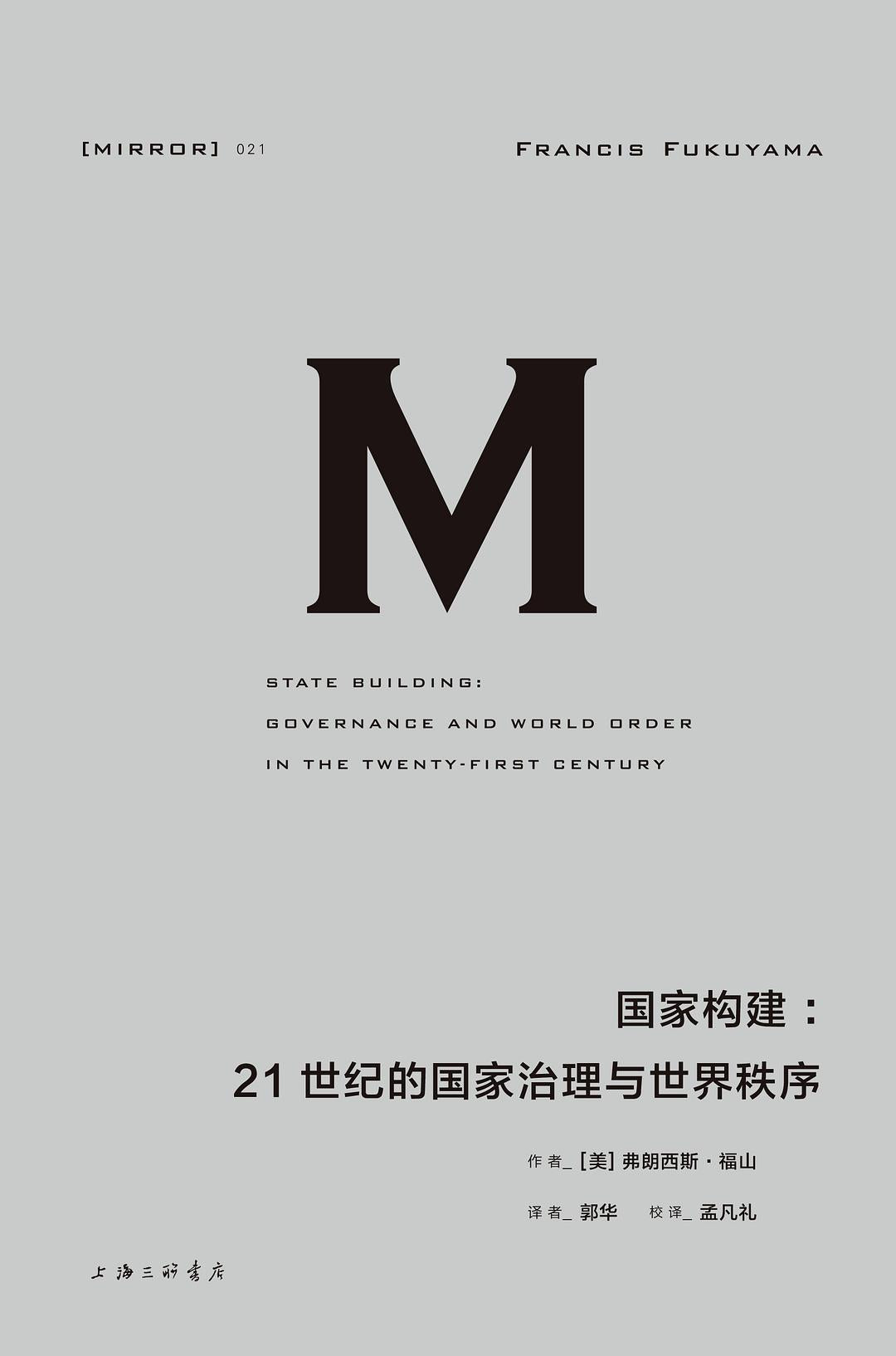WULOLIFE
《国家构建: 21世纪的国家治理与世界秩序》作者: [美]弗朗西斯·福山 丛书: 理想国译丛
《国家构建: 21世纪的国家治理与世界秩序》作者: [美]弗朗西斯·福山 丛书: 理想国译丛
Couldn't load pickup availability
Description
内容简介 · · · · · ·
贫困、毒品、艾滋病、恐怖主义——今天的世界面临着诸多艰深复杂的难题,它们不仅困扰着生活在安全。关于这些问题的源的弗朗西斯·福山认为,促使这些问题产生的原因是相同的:国家软弱无能或失败。而构建。
本书围绕国家构建这一命题,在国家治理和世界秩序两个层面上进行了讨论。作者认为,软弱当今世界许多严重问题的根源。为克服这些问题,应当在精简国家功能范围的同时,加强国家功能范围内的能力。作者从辨析国家的概念结合组织理论和当代政治现实,提出了在发展中国家构建强有力的国家制度的方式,以及国际社会干预他国时应当重视的国家构建手段,并最终指出,无论是民族国家的国家建设还是国际社会援助与干预,都有着一个共同的目标:建设小而强的国家。
=====================================
编辑推荐
★ 下启《政治秩序的起源》等作 以国家为镜鉴探索新世纪的人类兴衰
随着21世纪的来临,人类世界踏入了一个崭新的阶段。正是站在这一历史节点上,福山集中关注起国家构建的重大意义,此后陆续撰写了两本视野广阔的国家构建历史著作:《政治秩序的起源》和《政治秩序与政治衰败》。
★ 结合组织理论和公共管理学理论 解析国家软弱的基因和制度弊端的病理
从比较政治学的角度切入,对比现实中的不同国家在重要领域的治理成绩,以作者一贯的清晰明了展现各国的国家功能水平,明白易懂地分析制度弊病产生的原因和构建高效组织制度的困难。
★ 紧贴世界时事和现代历史 兼具殷切的现实关怀和福山式的历史视角
从贫困、毒品、艾滋病、恐怖主义等人类社会面临的一系列现实问题出发,围绕解决这些问题的方法对国家构建理论展开阐述,同时不忘回顾二战以来的相关经典历史案例,兼顾迫切的现实需要与深度的历史回顾。
★ 北大教授李强作序推荐 全面梳理福山国家理论十余年来的研究思路
同时总述了作者在后续《政治秩序的起源》等著作中进一步阐述的国家构建理论,帮助读者深入全面地认识作者以广阔宏大的比较政治视野勾勒出的“一幅世界范围的国家构建历史”。
=====================================
名人推荐
他对我们理解今天这个复杂世界的社会和政治问题做出了富有洞见的杰出贡献。
——塞缪尔·亨廷顿
福山令人信服地指出,当今世界的重大问题——从贫困到艾不是国家过度统治的结果,而是许多国家积年软弱或完全失败导致的。国家的崩溃或软弱在20%90%索沃和东帝汶造成了重大的人道主义和人权灾难。美国人一度认为,他们只需给钱或者派遣维和部队就可以应对这些灾难,但是9·11事件证明,即使是一个富裕而强大的国家,也仍然不免受到这些遥远而混乱的土地孕育出的灾难的影响。
——《巴尔的摩太阳报》
福山是一位善于处理宏大主题的杰出作者,他敢用一章总结出发展理论的历史,再用另一章总结组织理论的历史。他不需要借助什么专业术语就能把问题讲清楚,让读者能够跟上他的思路。
——《华盛顿邮报》
他是一位政治领军人物。这本书探索了恐怖主义时代下的一个核心问题:对于脆弱、失败的国家进行“国家构建”的危害(以及某些时。
作者简介 · · · · · ·
弗朗西斯•福山(Francis Fukuyama,哈佛大学政治学博士,现任美国斯坦福大学弗里曼•斯伯格里国际问题研究所奥利弗•诺梅里尼高级研究员,此前曾任教于约翰•霍普金斯大学尼兹高等国际研究院、乔治•梅森大学公共政策学院,曾任美国国务院政策企划局副局长、兰德公司研究员。著有《历史的终结与最后的人》、《信任》、《政治秩序的起源》等。现居加利福尼亚。
=====================================
译者简介
郭华,牛津大学教育学硕士,伦敦大学教育研究院社会学博士。现旅居英国。在国内外媒体发表过系列关于英国文化和教育的专栏文章,另译有福山作品《信任:社会美德与创造经济繁荣》等。
